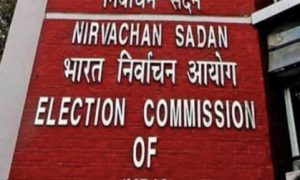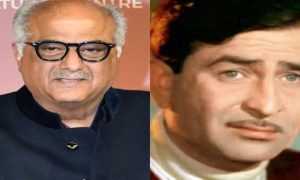They used their intellect and communication skills to inspire their talented wards to deliver gold for India in the Asian Games. Their inputs, much of it in preparation and some of it during actual competition, were so telling that nobody could ignore their import. So many Asian Games medals bore the ‘Made in India’ stamp, but with significant inputs from foreign coaches and support staff.
The ageing American 400m coach Galina Bukharina stuck to her guns in not drawing from those who did not train with her, but helped India win the three relay medals, including women’s gold by fielding the two fastest runners first to ensure India would gain a massive lead before Bahrain’s champion sprinter Salwa Naser could come into the picture.
Georgian Emzario Bentinidis has overseen freestyle wrestler Bajrang Punia’s recent evolution from a vastly talented freestyler to a feared and respected one who won gold in Jakarta. Hungarian Woller Akos was thousands of miles away from the mat at Jakarta Convention Centre, but Vinesh Phogat was able to mark her comeback to the big stage with gold, thanks to his training and inputs.
The six-time Olympian Munkhbayar Dorjsuren coached 25m pistol shooter Rahi Sarnobat to a historic maiden gold for Indian women in Asian Games shooting. The Mongolian-German, who won an Olympic bronze medal each for both nations in 1992 and 2008, sharpened Sarnobat’s skills, thanks to Olympic Gold Quest’s assistance just as in the two wrestlers’ cases.
The 3-day eventing rider Fouaad Mirza (astride Seigneur Medicott), coached by Bettina Hoy, claimed a silver medal, the first in equestrian sport for India in 36 years. Table tennis coach Massimo Costantini encouraged G Sathiyan, Achanta Sharath Kamal and Manika Batra to be at their competitive best and land two bronze medals that some reckon are as valuable as gold.
In fact, foreign coaches, including those sourced privately as in wrestlers Bajrang and Vinesh’s cases as well as shooter Sarnobat and rider Mirza, helped shape seven of the 15 gold medals India won.
After the likes of Anju Bobby George and Abhinav Bindra used a daring approach and found themselves coaches overseas, more and more Indians are walking that route. On the one hand, it may be the best idea but, on the other, it could soon mean that every athlete will hire a coach of his or her own, unmindful of National camps and National coaches.
German javelin coach Uwe Hohn and Romanian jumps coach Bedros Bedrosian played no mean role in helping Neeraj Chopra and triple jumper Arpinder Singh keep their tryst with the respective gold medals. They kept their wards primed for peak performance at the Asian Games and, in Bedrosian’s case, he was helping decide jumping strategy to demoralise the competition.
Even if is undeniable that India’s stock plummeted in terms of medals won in rowing this time and even if Romanian rowing coach Gioga Nicolae was not wearing India colours when the quadruple sculls gold was won by Sawarn Singh Virk, Dattu Bhokanal, Om Prakash and Sukhmeet Singh, it would be wrong to conclude that he made no contribution.
The Rowing Federation of India dispensed with the services of the mercurial coach almost before singles sculler Bhokanal gave up pursuit of a medal after being in the hunt for three-quarters of the 2000m race. It was an unsavoury episode that played out in Palembang, away from the eyes of the TV cameras.
There should be no doubt that the dapper Amit Panghal’s 49kg class boxing gold medal and the reams of newsprint taken up by how Santiago Nieva and his team of analysts provided the pugilist crucial inputs ahead of his gold medal match against Olympic champion Hasanboy Dusmatov will save the Swede his job as Indian men’s high performance coach.
Yet, for every Bedros Bedrosian-Arpinder Singh story, a Jasvinder Singh Bhatia/PT Usha-Jinson Johnson or an Amrish Kumar-Manjit Singh parallel is available. A Bentinidis-Punia partnership finds balance in a Tajinderpal Singh Toor-Mohinder Singh Dhillon or a Jaspal Rana-Saurabh Chaudhary pairing as coach and athlete.
Having said that, let us focus the spotlight on the foreign coaches. It is an oft-heard refrain that overseas coaches would help naturally talented Indian athletes gain the cutting edge. We also hear just as frequently that Indian coaches are good enough and that foreign coaches do not deliver the promise of inspiring athletes to deliver quality efforts.
Truth be told, it is a conundrum that does not have a simple yes/no answer. Like many things in life, the issue of foreign coaches managing the players’ workload and plotting their rise to the next levels is a double-edged sword. Suffice to say, the foreign hand — spoken off in hushed tones in some circles — is not always a bad one!
Then again, the foreign hand is not always a great one, either. For, it is clear that not all overseas coaches have been able to help their wards deliver medals, let alone gold. Take, for example, the race-walking coach, Alexander Artsybashev. Or, for that matter, trap and skeet coaches, Marcelo Dradi and Falco Ennio will be in the line of fire too.
Similarly, the National Rifle Association of Indian would be tempted to review pistol coach Pavel Smirnov’s contract, given that a number of young shooters, including Saurabh Chaudhary, have been under Jaspal Rana’s wings while Heena Sidhu, 10m air pistol bronze medallist trains with her husband Ronak Pandit.
Women’s boxing high performance coach Raffaele Bergamasco (Italy) could find it tough to hold on in the wake of the defeat of all three boxers in the quarter-finals, especially with Sarjubala Devi and Sonia Lather losing their opening bouts when all they needed to do get a medal was win that respective first bout.
And in badminton, Tan Kim Her, the 46-year-old doubles coach from Malaysia, produced excellent results in the Commonwealth Games, but was unable to replicate that magic in Jakarta, with the women’s doubles pairing of Ashwini Ponnappa and Sikki Reddy being the only combination that went up to the quarter-finals.
Of course, at the end of the day, in nearly all individual sports, it is the athlete who has make the decisions during competition. A coach, overseas or home-grown, can at best offer a pointer during a contest. The coach’s key role is in preparation and in enabling the athlete make the right decisions at crucial moments in a match.
The annual report of the Ministry of Youth Affairs and Sports says that as many as 28 coaches across many disciplines and nine support staff in athletics and hockey have been engaged by the Sports Authority of India in consultation with the National Sports Federations.
It would help if SAI and NSFs conduct an honest review of coach performances in the Asian Games soon so that the preparations for 2020 Olympic Games and the 2022 Asian Games start in the right earnest. It is a fine balance that India needs to strike as it sets off on a tight-rope walk in making a choice between foreign and Indian coaches.
There is still an ad-hoc approach in some case. If India can change that, it may find better results. India should not be scouting around for coaches with only a few weeks left for the Asian Games as it did in sailing. Italian Olympian Francesca Clapcich was hired to coach the 49er FX Women team of Varsha Gautham and Shweta Shervegar only for the duration of the Games.
It is crucial that coaches are contracted for the whole of the Asian Games cycle. Of course, National Sports Federations will say that the world follows the Olympic cycle, but India has come to a stage where it can set the terms. After all, it is said, perhaps in jest, that while coaches come with the idea of changing Indian mindset, they end up making the adjustments themselves.
For more updates: Like us on Facebook and follow us on Twitter & Instagram




























